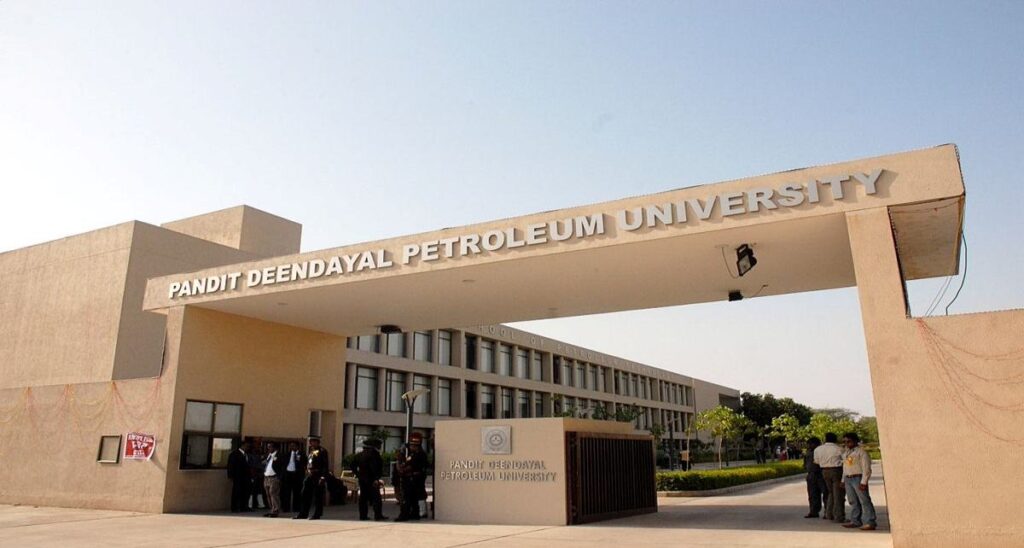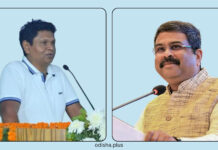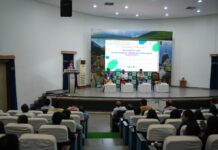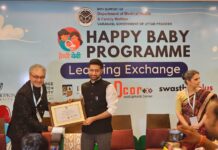by Prof Ujjwal K Chowdhury

There are around 900 universities of all hues in India and above 100,000 colleges as well while the proportion of the population in higher education in India is still less than 10% of 130 crores, in spite of India being the youngest large nation where in every 3 persons, 2 are below 35 years and half of the total population is below 25 years of age, in the educational age so to say. The Knowledge Commission some ten years ago advocated more than 1500 universities to reach out to the entire population.
And if we go into the details of education being delivered through these 900 universities and 100,000 colleges, we largely find that we are delivering a 20th century education to 21st century youth and preparing them for the unknown economy and society that is yet to come in. There is naturally an enormous dichotomy between what is needed and what we deliver which only contributes to rising tide of unemployable educated youths. There are glorious exceptions to this dismal scenario though.

What could be the innovations for education of tomorrow? Confederation of Indian Industries organized a conclave in Kolkata on this theme recently. There and here I present my eight top of the mind points for an innovative vision of higher education in India.
First, education must move from being teacher-centric to learner-centric and the entire concept of student has to change to a learner. Teacher is no more the sage on the stage but a guide on the side. No teacher in the internet era can know it all, of any subject, and there are options for students to know more than the teacher on any issue. So, the job of the 21st century teacher is to be a mentor, motivator, facilitator, and first stimulus to grow interest in any theme or subject among the learners. There has to be role-alteration consciously here as a guide and co-researcher and not the last word on any issue. Students, on their part, have to move ahead as students merely study in classrooms, for marks and degrees and are to be spoon-fed. They have to move to the next paradigm of learners for whom classroom is just one source of learning, sometimes not even the major one, others being internet, personal and peer experiences, labs and society at large. They research, learn, explore and internalize by practising for acquiring a productive life skill.
Second, a major educational innovation comes from the perspective of convergence. So we get a converging pedagogy which combines the experiential learning with traditional brick and mortar and the modern IT enabled click and portal one. Even evaluation of education cannot be based on earlier year-end long written exams. We are moving into a modular education, delivered semester-wise (in some cases even trimesters) with a blended evaluation incorporating simulated and live projects, continuous internal assessments of quiz and debates, field-work reports, case-studies, online tests and class presentations. A much well-rounded learner can evolve from a convergent evaluation. Even branding or communication of educational institutes is becoming convergent with all channels being used with a single brand promise: online channels of portal and social media, offline channels of newspapers, magazines and hoardings, on air channels of television, radio and cinema, on ground channels of events, malls, experiential marketing, and on mobile channel of apps and mobile-based notifications. The universities which are able to blend all of the above in a given geography for a given target audience are able to have better outcomes.

Third, flexibility in education is the innovative vision of our times. While BA BCom BSc all over India are three years long degrees, for Pandit Deendayal Petroleum University of Gandhinagar, these are of 4-years in keeping with Western practice. BITS Pilani has evolved an industry-centric BTech for working professionals where the education is delivered at the work-places along with their work. Many universities are creating integrated UG-PG course of five years duration. Nomenclatures are being questioned as in Journalism & Mass Communication as journalism is a component of communication, and communication can be niche, mass, group etc.
Fourth, inclusivity is the new innovation of the day. Instead of all girls, or all minorities, or all Hindus, or a linguistic group, the order of the day is gradually to opt for an inclusive all communities and genders campus-life which helps in making more well rounded citizens with a global mindset and higher tolerance. Scholarships, based on both merits and means, encouraging women and event creating safe environs for the LGBTQ communities on campuses are crucial inclusive factors.
Add to this, as a fifth point, national and global mentors and learners. The more varied will be the composition of mentoring and learning folks, more tolerant, mutually respectful and global will be the mindset of all involved. Hence, an innovation ahead should be compulsory visit by learners to other parts of India and, budget allowing, going abroad for education tour, a project, an internship, workshops or a semester. It is heartening to see SP Jain Management and Amity University coming out with two or three location degrees giving a global experience and outlook to learners. This breaks myths about ‘the others’ and creates desire to explore more in life and at work.
Sixth, the entire degree-centric higher education needs to give place to skills and values-centric education. What are we mentoring and learning for? To have a value-based approach to life, be responsible global citizens, and be productive for the economy and earn a decent livelihood. And none of these depends on a degree. It is just the legal power of the University, received through a decree of the government of the day, that degree looks big. For a measure of qualification, degrees are welcome. But the focus has to be on skills and values. Amazon, Google, Apple and Facebook are among some major global companies who have already declared that they do not need degrees, will give no premium to degrees, but only hire based on skills and attitudes. They do not find the same degrees of the same discipline across nations or even across provinces of the same nation of any comparable quality.

Seventh, the new era needs certain non-technical skills or orientation as well: business orientation, entrepreneurial skills and leadership skills. End use sensitivity of every education and skill-learning is significant. Learning is for a society in general, and a market segment in particular, for a job more narrowly, and for some clients or users of the learner’s skills finally. Sensitivity to these is a necessary part of higher education today.
Eighth, and finally, there is a new gamut of abilities for the times ahead which are necessary to be intertwined in our higher education courses. Crowd-sourcing of ideas, projects and funds is an important skills in times of shared gig economy increasingly dependent on collaboration and not competition, freelance talent and not bonded ones. Next is the understanding of block-chains of projects and businesses which is disrupting traditional business models. Ability to participate productively in a shared economy and create one’s own space itself is a major skill. Artificial Intelligence will take away all skills of mass production, repetition, low IQ tasks and wherever there is a precedence. That reduces human scope of work. Hence, skills to create, innovate, problem solve, crisis management, design thinking, critically think, teamwork and create prototypes or templates for AI are the skills that will ultimately remain with humans (though AI will impact upon some of these too with more progress of technology).
We are entering into an era of multi-skilled human resources, with one in-depth skill, higher emotional intelligence, and with ability to seamlessly move across economies, geographies and groups of people. And these talents or human capital is for a world which is increasingly disruptive, uncertain, innovative, and yet shared. But is our higher education geared to prepare our younger generation for such a scenario? Jury is open.
The author is a noted media academic and columnist and is currently the Pro Vice Chancellor of Kolkata based Adamas University. He was earlier the Media Dean of Symbiosis and Amity Universities, Whistling Woods and Pearl Academy. This piece is based on his talk in the CII Higher Education Conclave in Kolkata on August 17 last on Innovision India.





















